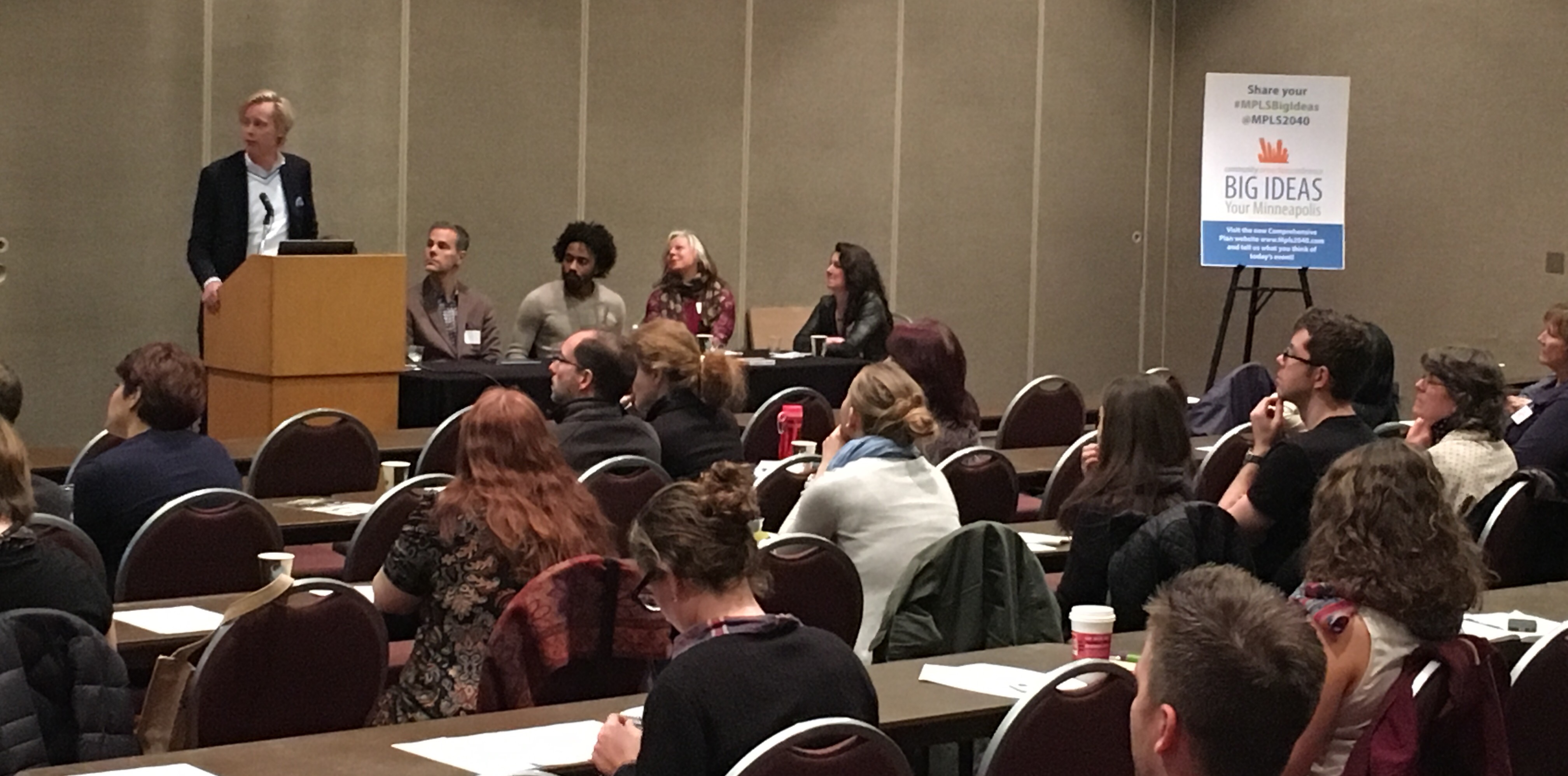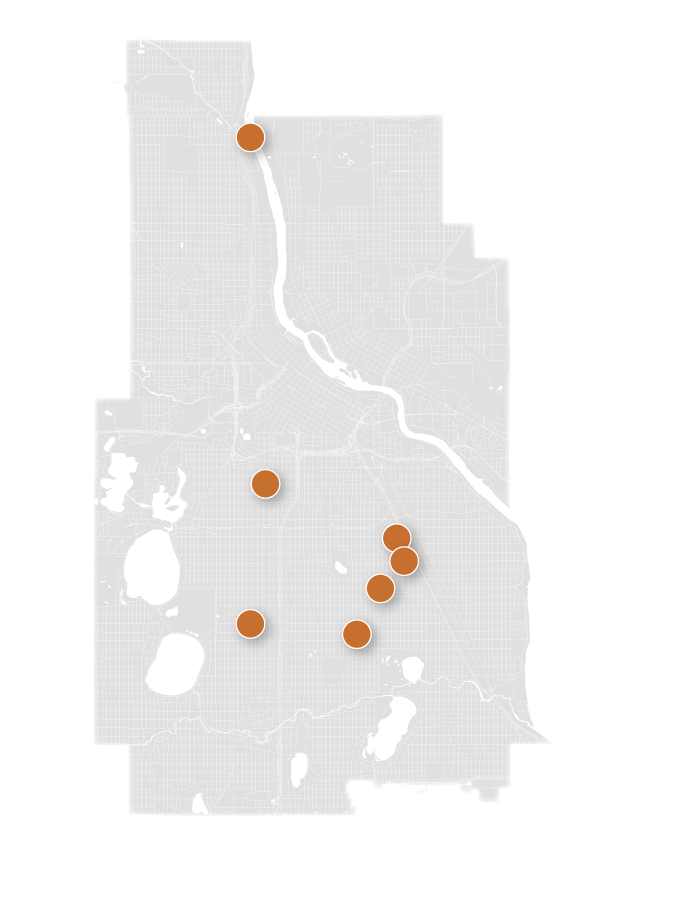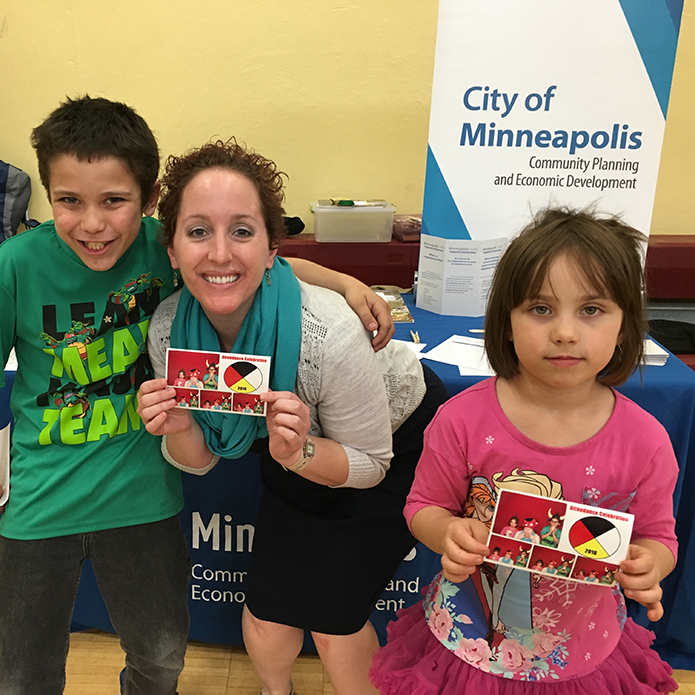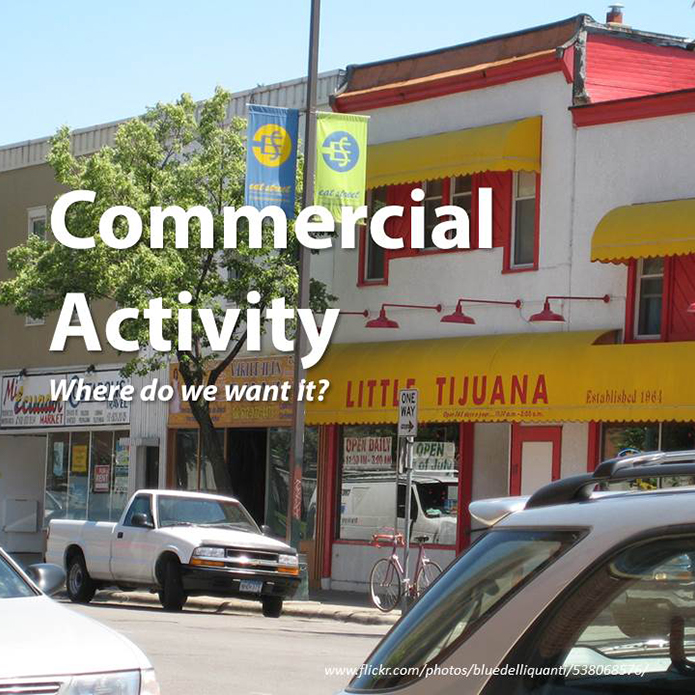Phase 1: Launch (April 2016)


The first phase of the project focused on building awareness of Minneapolis 2040 with an exploration of emerging ideas and treads, current conditions, and existing policies. The process kicked off in April 2016. During this phase of engagement, City staff asked participants how they wanted to be engaged, what their existing priorities and initiatives are about, and what their big ideas were for the future of the city.
The comprehensive planning process kicked off at the annual Community Connections Conference, hosted by the Department of Neighborhood and Community Relations, on April 2, 2016 at the Minneapolis Convention Center. The conference is designed to create and strengthen relationships and collaborations between residents, neighborhood organizations, cultural communities, and the City to collectively address systemic issues and explore unique-innovative solutions.
City staff collaborated with cultural organizations to start initial discussion and learn about the community’s concerns and issues that they have been working on. The City held a series of Community Dialogues to raise awareness about the planning effort to update the city’s comprehensive plan, and seek feedback on how they would like the City to engage with them throughout the project.
Engagement Activities
|
Big Ideas: Your Minneapolis South Minneapolis Housing Fair MayDay Parade and Festival May 4th Attendance Fair |
Southeast Asian Community Dialogue East African Community Dialogue Metropolitan Urban Indian Directors (MUID) Phase 1 Meeting-in-a-Box (Packet and Presentation) |
Engagement Questions
During the Launch phase, staff asked how people want to be engaged and asked for big ideas for the future of the city.
-
What are your big ideas for the future of Minneapolis?
-
What are some of the issues that your community is working on?
-
How would you like to be engaged throughout the comprehensive planning process?
Methods

The comprehensive planning process kicked off at the annual Community Connections Conference at the Minneapolis Convention Center on April 2, 2016. A series of workshops for the comprehensive plan were hosted based on the 6 comprehensive plan values of equity, economic competitiveness, growth, sustainability, governance, and livability. City staff hosted panel discussions to inform participants about how these lenses align with city goals, and how that affects residents in the city.

The first round of Community Dialogues was hosted by several cultural organizations throughout the month of March in advance of the conference. Community Dialogues are facilitated conversations between City departments and cultural communities as well as other under-represented groups. Staff presented an overview of the comprehensive plan, and how those policies in the plan inform the decisions made by the City. Communities were then asked about the issues that the community is working on, and how they would like to be engaged throughout the comprehensive planning process.
During the remainder of the Phase 1, Staff attended street festivals and events throughout the city in order to raise awareness about the project. Artist graphics and project cards were distributed at various events to connect the public to online resources and future engagement activities.
What did we hear?
Much of the focus in Phase 1: Launch was raising awareness of planning effort for the update to the City’s comprehensive plan. Initial conversations were held with various cultural communities. A summary handout of Phase 1 engagement activities can be found here.
What are your big ideas?
- The city becomes more sensitive to environmental justice issues, particularly in NE Minneapolis, and acts accordingly.
- I’m hoping we have self-driving cars by 2040 and I’m hoping that this city continues to be #1 for biking, #1 for parks, and #1 for residents who go outside in all weather conditions.
- Have a variety of TRULY affordable (and livable!) housing options, for singles and families.
What are some of the issues that your community is working on?
- Communities need more culturally accessible resources to start businesses, find housing, and physical and social health services.
- There is a lack of housing choices for large families, especially for multi-generational households.
- Parks and public spaces can be unsafe to walk to and difficult to use.
How will you like to be engaged?
- The City needs to go to the community, and return to the group after every phase of engagement to report back on what has happened and how the gathered feedback was used.
- Host a mix of open houses on various topics that people can engage on and small focus group discussions.
Next Steps/How was the feedback used?
The City heard from the community that in order to have authentic engagement, the City must go to the community and show how their feedback is used in order to build trust and empower community members. Staff worked with cultural organizations to build a relationship for future engagement, and identified future opportunities to return with City leaders.
Additionally, participants from the Community Dialogues also identified several topics that are relevant to their lives which included housing, economic development, and health. There was a concern that there are so many topics related to the comprehensive plan, and it was important to organize future engagement around topics that are applicable to the lives of the community. Staff worked to prioritize key topics that are relevant to each unique community, which set the foundation for the organization of engagement content for Phase 2: Big Questions.

